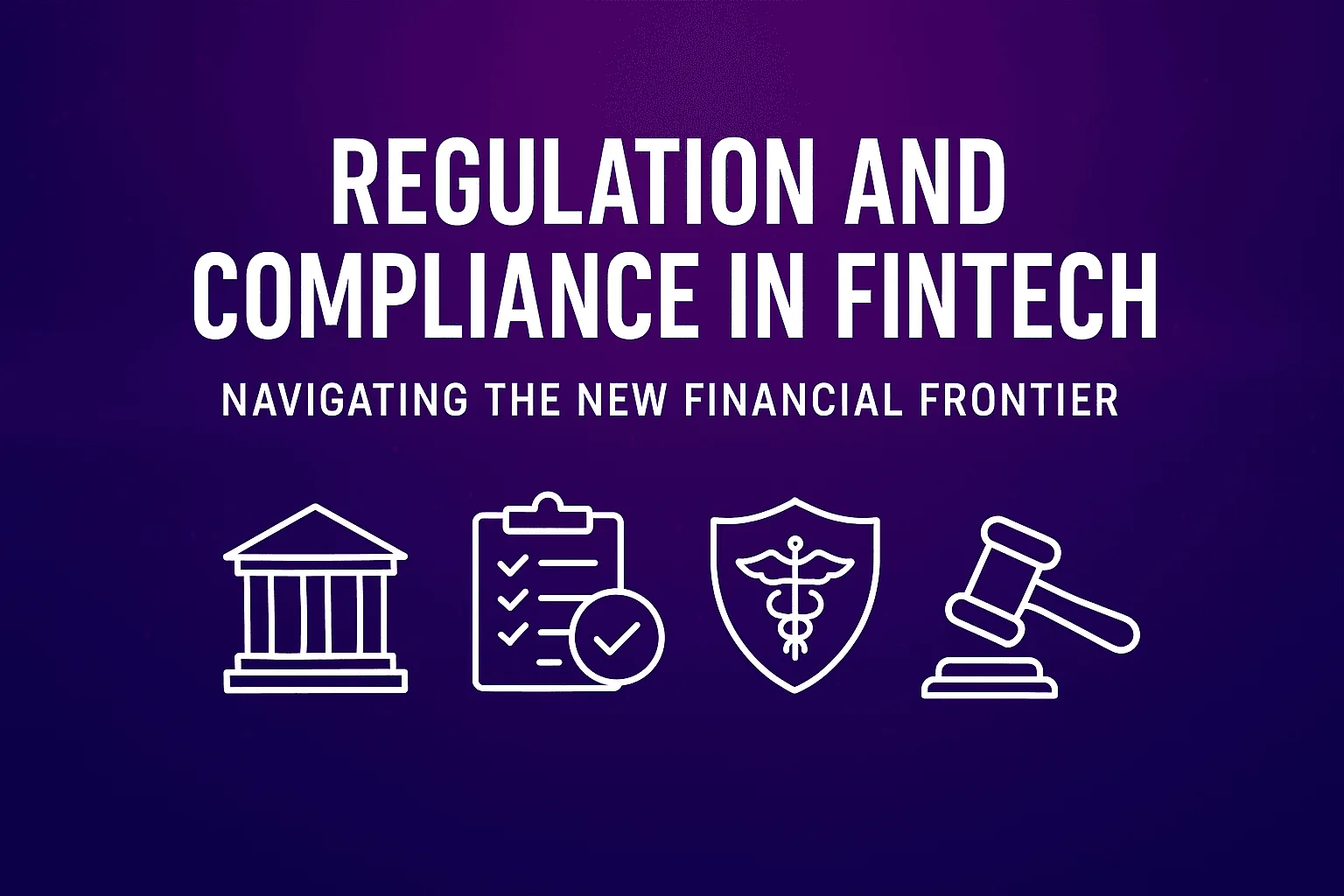Fintech has always been about innovation, speed, and accessibility. Yet, as digital financial services scale globally… Regulation and compliance have become just as important as product design and user experience.
No matter how disruptive a fintech platform is, it must operate within legal frameworks that are evolving rapidly.
Understanding regulation and compliance is now a critical success factor for fintech founders, investors, and operational leaders. It is no longer enough to innovate. Businesses must also demonstrate governance, risk management, and consumer protection from day one.
The Rising Tide of Fintech Regulation

Initially, fintech operated in a relatively unregulated grey zone. Peer-to-peer lending platforms, payment apps, and crypto exchanges often launched with minimal oversight. However, as these services grew in importance and market size, regulators began paying closer attention.
Today, fintech companies are expected to meet many of the same standards as traditional financial institutions. These include anti-money laundering (AML) rules, know your customer (KYC) checks, data privacy requirements, cybersecurity protocols, and financial reporting obligations.
In regions such as the European Union, the United Kingdom, the United States, and Singapore, specialised regulatory frameworks for fintech now exist. Open banking mandates, digital asset licensing regimes, and payment services regulations are examples of how governments are trying to balance innovation with stability.
Compliance by Design: A Strategic Advantage

Rather than viewing regulation as a burden, leading fintech companies treat compliance as a strategic advantage. Building compliance frameworks early not only reduces legal risk but also builds credibility with customers, partners, and investors.
Modern compliance is increasingly about embedding controls into the technology stack. Automated KYC onboarding, real-time transaction monitoring, AI-driven fraud detection, and smart reporting tools allow fintechs to stay compliant without stifling growth.
RegTech companies like Alloy, ComplyAdvantage, and Trulioo are providing APIs and platforms that make it easier for fintechs to integrate compliance into their core workflows.
By designing for compliance from the beginning, fintechs can enter new markets faster, negotiate better partnerships, and withstand the scrutiny that inevitably comes with success.
Key Regulatory Themes Shaping Fintech

Several regulatory trends are particularly important for fintech leaders to understand:
1. Open Finance and Data Privacy: Open banking initiatives are expanding into open finance, requiring fintechs to securely manage and share user data. Data privacy laws such as GDPR and CCPA impose strict obligations around consent, security, and user rights.
2. Crypto and Digital Assets: Governments are rapidly building frameworks for digital asset custody, trading, and issuance. Stablecoins, NFTs, and decentralised finance (DeFi) are coming under closer supervision, especially regarding AML and investor protection.
3. Embedded Finance and Banking-as-a-Service: As non-financial companies offer banking products, regulators are examining how risk is managed, who holds ultimate responsibility, and whether consumer protections are in place.
4. ESG and Financial Sustainability: Fintechs providing investment and lending products are increasingly expected to consider environmental, social, and governance factors. Regulators are pushing for transparency in sustainability claims and ESG risk disclosures.
5. Cross-Border Supervision: Fintechs operating across multiple jurisdictions must navigate a patchwork of local regulations. Licensing, reporting, and data storage requirements vary widely, requiring expert legal and operational planning.
The Role of Collaboration

Fintech cannot — and should not — avoid regulation. Instead, forward-looking fintechs are working with regulators through sandboxes, consultation processes, and innovation hubs.
Regulatory sandboxes, pioneered in the UK and Singapore, allow startups to test products under supervised conditions. Open dialogue with regulators can help shape policies that protect consumers without stifling innovation.
Collaboration between fintechs, banks, insurers, and governments is also crucial for building trust in new financial models.
In the new era of digital finance, regulation and compliance are not optional extras. They are foundational requirements for sustainable growth. Fintechs that embrace regulatory excellence, invest in robust compliance systems, and engage proactively with authorities will be the ones that thrive.














